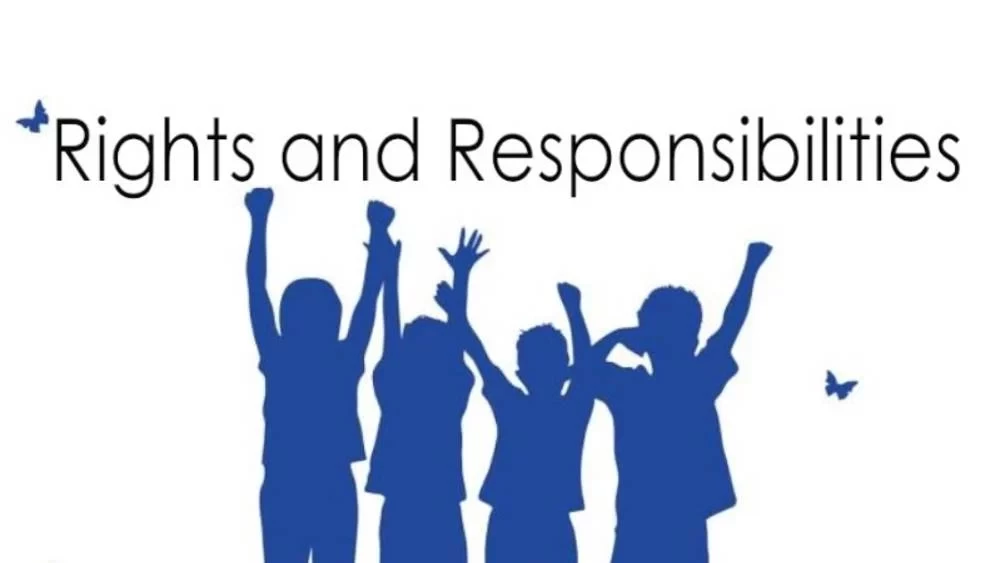
THE discourse of rights generates more heat than light. It is a discourse that is often approached with arguments of relativism depending on one’s location, socialisation, orientation, training, education and background.
The enquiry becomes complexified when the issue of responsibilities is added to the polemic.
It is the object of this opinion article to submit that responsibility is the corollary of any rights. Rights denote special possessable goods or entitlements that should be enjoyed by human beings.
Human beings qualify to enjoy rights by virtue of being human beings. Arguably, the above understanding of human rights gives rise to its principal principles such as inalienability, non-discrimination and universality.
For example, the right to health, education, life, water and sanitation and shelter, among others demonstrate the concept of universality.
However, this universality is still stoutly contested in some cultures. According to the United Nations Women Report (2025) in some countries such as Afghanistan, Sudan, Niger, Iran and South Sudan, women’s right to education is not prized. Women are largely objectified.
The objectification of women in these countries is either informed by culture, religion or poverty.
In countries where girls and women are thingified, there are high rates of illiteracy and early marriages for them coming with soft and hard scars.
- More woes for suspended Cottco boss
- Spike in child labour cases riles ZHRC
- City ranks low in child marriages
- News in depth: Zimbabweans choke under weight of worsening service delivery failures
Keep Reading
If girls and women have a right to education, whose responsibility then is it to ensure that they enjoy this right to the hilt?
All things being equal, it is first and foremost their responsibility to enjoy this right and where there are barriers to the enjoyment of the right, it is the state’s responsibility and duty to ensure girls and women’s right to education is prioritised.
There are occlusions such as conflicts, toxic religious and cultural practices, poverty and wars that delay and derail the right to education for the female gender.
Going a stage further with the right to education exemplification, the right may remain hollow if it is there and those entitled to it do not take the responsibility to exercise and quote it parri passu.
For example, if one has a right to education, one has the responsibility to be punctual for lessons, to listen closely to the teacher, to do homework, to research, to consult with the teacher and to contribute to the teaching and learning process.
The right to education cannot be fully realised if the bundle of responsibilities that comes with it is not deployed to augment it. Similarly, the right to education may not be optimally utilised for the growth and development of learners if the state shirks its responsibility of creating budgetary provisions and stimulus packages for its realisation by learners who may not have the resources to enjoy this special possessable good.
In the Global North, rights are more underscored than responsibilities as compared to the Global South. In the Global South, the discourse of responsibilities precedes that of rights because of its evolving economies and need to safeguard national security.
While in the Global North there is individual freedom that is characterised by autonomous behaviours, it is not so in the Global South as cultural rights precede individual rights. For example, in the African context, cultural rights are enjoyed collectively and come with responsibilities and duties of care for the family, village and community.
An African child is socialised into accepting that rights come with responsibilities towards fellow Africans. For example, one may not be educated if he or she does not leverage their education or status quo power to prop up his or her siblings, look after members of the extended family and the community from which he or she was raised.
The right to education in Africa, therefore, comes with defined responsibilities for other people. In Shona, there is a saying, “Chirere chigokureravo mangwana”, (understood in English that implies that parents or guardians have the right to raise their children so that when these children come of age they can in turn look after them).
The underlying message can be unpacked to show that investments in healthcare, education, training, and food and nutrition security for children yield long-term benefits.
These young ones grow into adults with the agency and capacity to care for their parents, siblings, and entire communities.
Nurturing children is, therefore, never a lost cause. On the contrary, this right compels parents and guardians to remain sensitive to their responsibilities in safeguarding and protecting them.
Arguably, every right comes with several responsibilities that are associated with claimants and duty bearers. Even for those citizens, who demand clean water, it is worth noting that while clean water is an inalienable right, its provision comes with costs and as such the citizens have a responsibility to pay for the purification of the water through their local authorities.
Every right is tied to responsibilities. For instance, the right to information also comes with the responsibility to ensuring first the credibility of the source of the information being received and shared.
The right to a driver’s licence also comes with the responsibility to protect lives on the road by following traffic rules. Similarly, the right to sexual intercourse also comes with the responsibility to seek consent, and not just to assume that the body language is indicating readiness.
In summation, rights on their own may not be complete without responsibilities that are congruent with them.
Rights and responsibilities should be considered as mutually constitutive and reinforcing. While rights are entitlements, responsibilities are the acts of doing the correct things to solidify those rights.
Nicholas is an inclusion and development specialist and Mafongoya is an attorney at law and academic. They write in a personal capacities.
Nicholas is an Inclusion and Development specialist and Mafongoya is an attorney at law and academic. They write in their personal capacities.











